AMLO says ‘important agreements’ reached with US on migrants
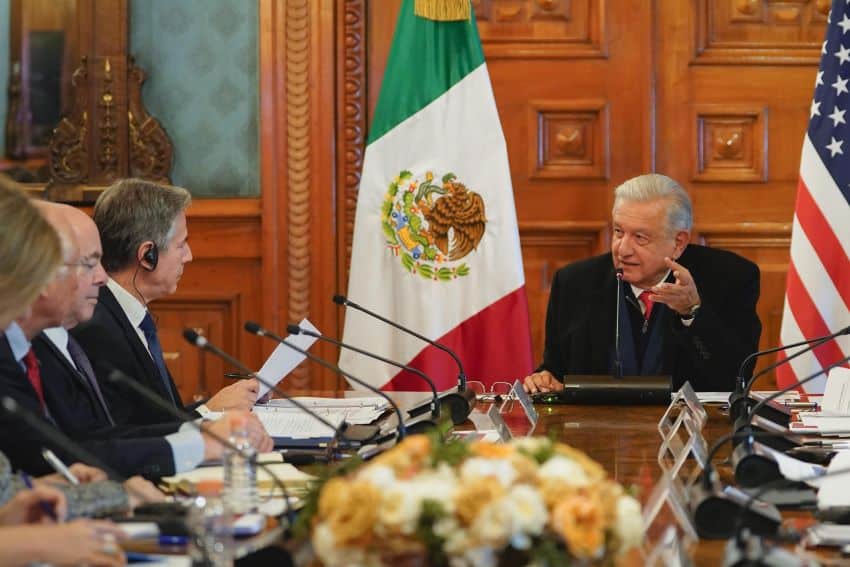
President Andrés Manuel López Obrador said Wednesday that Mexico and the United States reached “important agreements” at a migration-focused meeting in Mexico City, but provided few details about the deals.
As large numbers of migrants continue to enter the United States via Mexico, López Obrador, Foreign Affairs Minister Alicia Bárcena and other Mexican officials met at the National Palace with a U.S. delegation that included Secretary of State Antony Blinken, Secretary of Homeland Security Alejandro Mayorkas and Homeland Security Advisor Elizabeth Sherwood-Randall.
“We asked President Biden to meet with the [U.S. officials] … to directly deal with matters of economic cooperation, security and migration,” López Obrador said in a social media post on Wednesday evening.
“Important agreements were reached for the benefit of our people and nations. Now more than ever the good neighbor policy is essential,” he wrote.
Asked about the agreements at his morning press conference on Thursday, López Obrador – who spoke to Biden about migration last week – said that Mexico has to be “attentive so that [border] crossings aren’t closed,” but didn’t specify what that meant.
“This agreement was reached. The railway crossings and the border bridges are being opened, to normalize the situation,” he said six days after the United States reopened two rail bridges between Mexico and Texas that were closed on Monday last week to allow U.S. Customs and Border Protection (CBP) to redeploy personnel to assist operations to detain migrants.
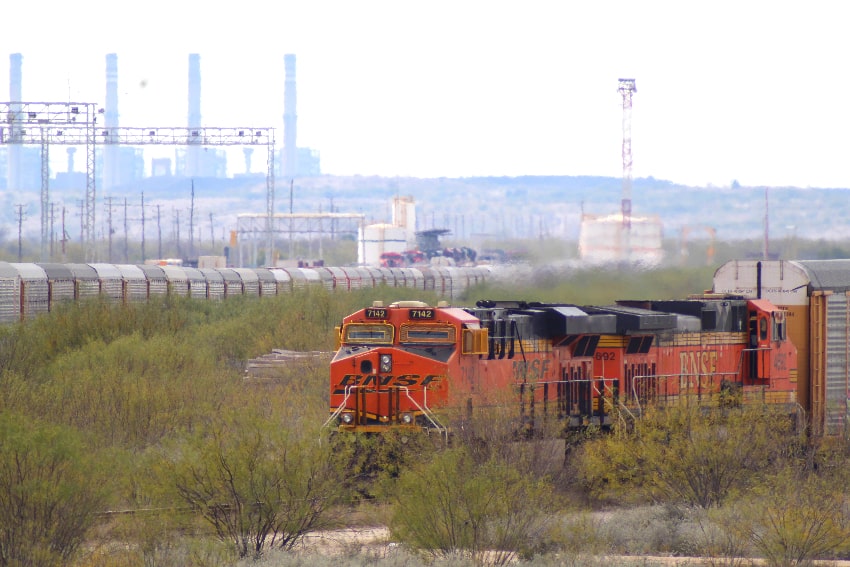
“… We also spoke about attention to the causes of migration, support for countries where people have to abandon their towns out of necessity, to search for work,” López Obrador said, adding that Mexican officials outlined Mexico’s efforts to stem migration via the implementation of employment programs in other countries in the region.
“They’re also doing their thing, they told us about that,” he said before acknowledging that the U.S. has opened up more legal migration pathways.
López Obrador – who in 2019 deployed the National Guard to increase enforcement against migrants after then U.S. president Donald Trump threatened to impose blanket tariffs on Mexican imports – also acknowledged that the U.S. is “overwhelmed” with new arrivals “because there are a lot of needs in the countries of Latin America and the Caribbean.”
“There is poverty, and the people look for better living and working conditions with migration,” he said.
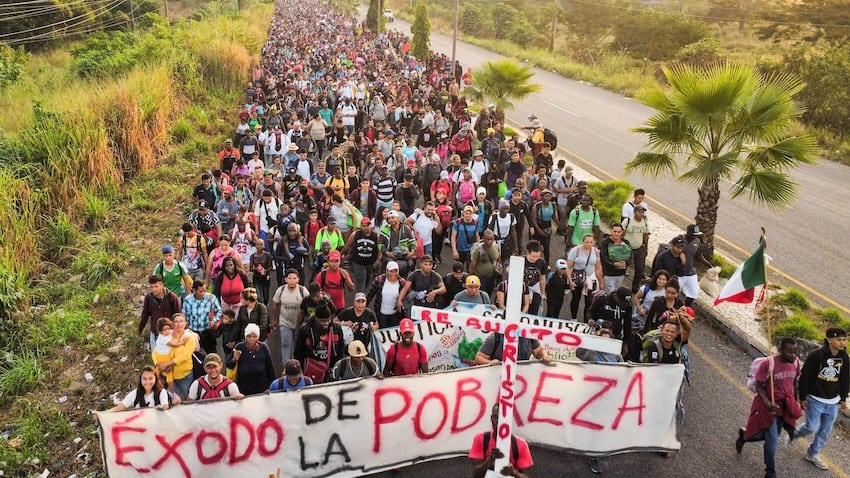
López Obrador said that the issues of people smuggling and the formation of migrant caravans – one of which departed southern Chiapas this week – were also addressed at Wednesday’s meeting.
According to unnamed senior U.S. officials cited in a CNN report, Mexico shared plans in the talks to crack down on migrant smugglers.
“… That was really aligned with the things that we’ve been focused on as well. Things like the need to really crack down on the smugglers that are putting migrants on buses, putting migrants on trains. We’ve seen that really contribute to the increase that we’ve seen at the border … in recent weeks,” a Biden administration official said.
López Obrador, who continues to use the National Guard to detain migrants, said last week that the United States wants his government to do more to stop migrants moving through Mexico to the U.S. after entering the country via the southern border with Guatemala.
Bárcena said on the X social media platform on Wednesday that the aim of the meeting with U.S. officials was to “strengthen the economic and political relationship between Mexico and the United States with agreements to cooperate on the structural causes of migration.”
She told reporters outside the National Palace that officials spoke about “the importance of reopening border crossings.”
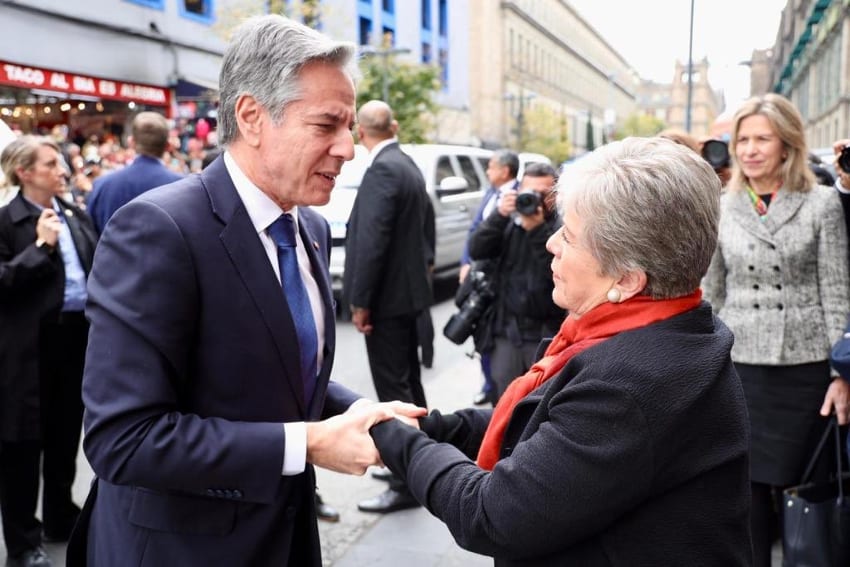
In addition to suspending operations at railway bridges in Eagle Pass and El Paso, U.S. authorities have recently closed vehicle and pedestrian ports of entry in Texas, California and Arizona amid a surge of migrant arrivals at the border.
Bárcena said that the reopening of all border crossings “is a priority for us.”
Her counterpart, Secretary Blinken, said on X that “shared efforts to reduce irregular migration” were discussed at Wednesday’s meeting.
He said that the United States “made clear in Mexico City” that it is “committed to partnering with Mexico to address our shared challenges, including managing unprecedented irregular migration in the region, reopening key ports of entry, and combating illicit fentanyl and other synthetic drugs.”
For his part, Mayorkas said on X that the meeting was “very productive.”
“… The regional challenge of migration requires regional solutions, and we appreciate Mexico’s commitment to continue its efforts alongside us and with others,” he wrote.

Migration is set to be a key issue in the United States presidential election in 2024.
Biden has come under sustained pressure this year from Republican Party politicians who assert that his administration isn’t doing enough to secure the the United States’ southern border.
CBP encountered a record high of almost 2.5 million migrants at the U.S.-Mexico border in fiscal year 2023, which ended in September, while applications for asylum in Mexico hit a record high of almost 137,000 in the first 11 months of the year.
Earlier this month, the National Immigration Institute suspended deportations of undocumented migrants due to a lack of resources, following a record-breaking year of transit of migrants through Mexico.
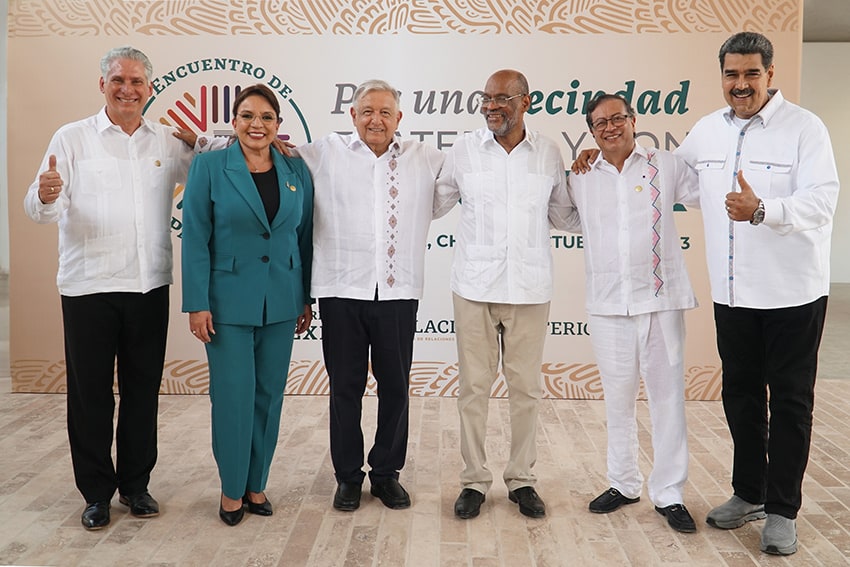
While the Mexican and United States governments have spoken about migration on several occasions this year, Mexico has also been speaking with other countries in the region.
In October, López Obrador hosted a regional migration summit in Palenque, Chiapas, at which the governments of 10 countries, including those of Mexico, Venezuela, Cuba and Colombia, agreed to 14 points to “jointly confront the migration reality” they face.
While the federal government sees the United States as an important part of the solution to the migration problem – with López Obrador repeatedly urging the U.S. Congress to approve additional funding aimed at addressing the root causes of migration – it also believes it has contributed to it.
At the conclusion of the Palenque summit, the governments in attendance sent a clear message to the U.S. in a joint statement: “lift unilateral coercive measures imposed on countries of the region,” such as the embargo against Cuba that has been in place for over six decades.
With reports from Latinus
Source: Mexico News Daily

